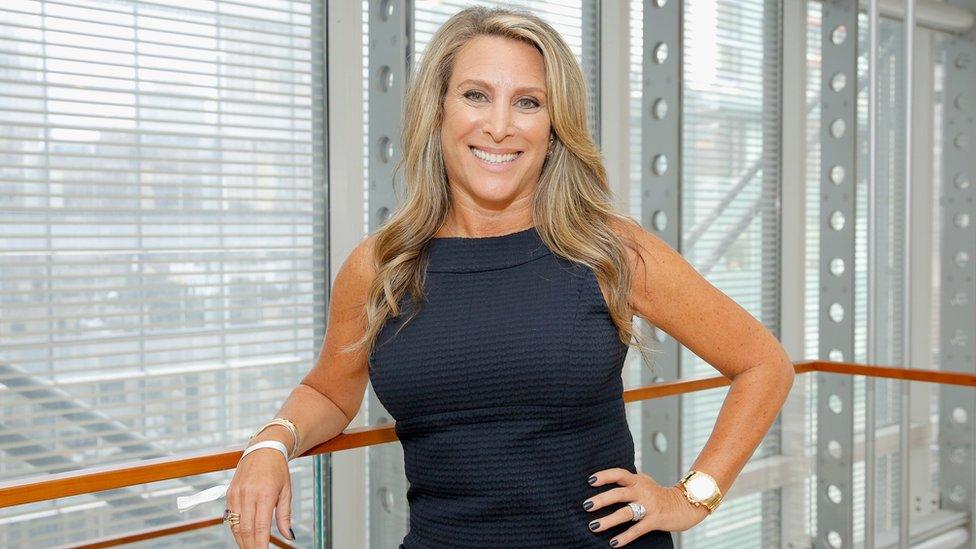The vegan trying to make the perfect burger
- Published
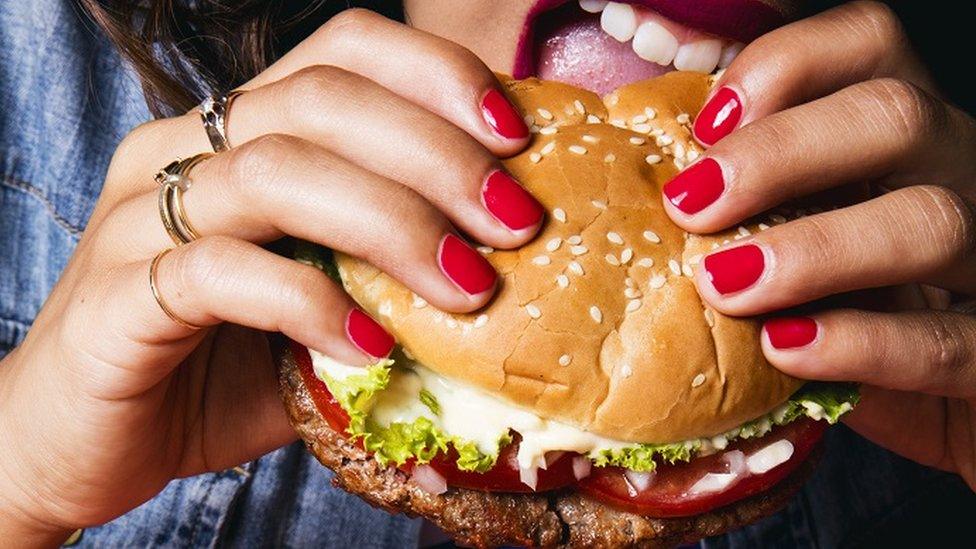
The "impossible burger" - as good as the real thing?
"My company's goal is to wipe out the animal farming industry and take them down," Patrick Brown tells me.
The grey-haired, former paediatrician turned professor at Stanford University School of Medicine, now turned start-up founder, may be softly spoken but he doesn't mince his words.
A vegan, he's come to the World Economic Forum in Davos to evangelise about how ditching meat can save the planet.
At Davos, where helping the United Nations reach its goal of eradicating hunger by 2030 is one of its goals, he's got a receptive audience.
A pop-up barbecue - set up by Brazilian charity Gastromotiva amid the snowy slopes - draws daily crowds. The company helps young people out of poverty by training them as chefs and creates its dishes out of food surplus that otherwise would have been thrown away.
It neatly illustrates the point that a staggering one third of food produced for human consumption is lost or wasted globally, around 1.3bn tonnes, which if used could help address the issue.
Does living to 100 mean we'll work forever?
The successful women embracing ‘girl power’
But Mr Brown's target is not the Davos elites but the masses.
The firm he set up almost seven years ago - Impossible Foods, external - is aiming to make the perfect meatless burger for "the hardcore meat lover".
Serving up food waste in Davos
The 62-year-old came up with the idea during a sabbatical. Freed from admin and teaching responsibilities, instead of hitting the beach he pondered what was the most important problem in the world he could do something about.
The issue he hit upon was animal farming due to its environmental impact.
'Cardboard food'
While he personally has been a vegan for years, he said this was a personal choice and had nothing to do with his decision.
Rattling off statistics staccato style he says the sector uses a third of the world's water supply and land, with the greenhouse gas impact second only to the power industry.
But while startling, he admits such facts won't change people's minds or behaviour, or persuade them to eat "cardboard food".
Instead, he decided to try to solve the problem scientifically.
"A different way of looking at it is that it's not a problem that people love meat and dairy products. The problem is that we produce them using animals, which is completely inefficient," he says.
So he set his mind to creating a burger - with the same nutritional value, taste and texture of ground beef - just without using an animal.
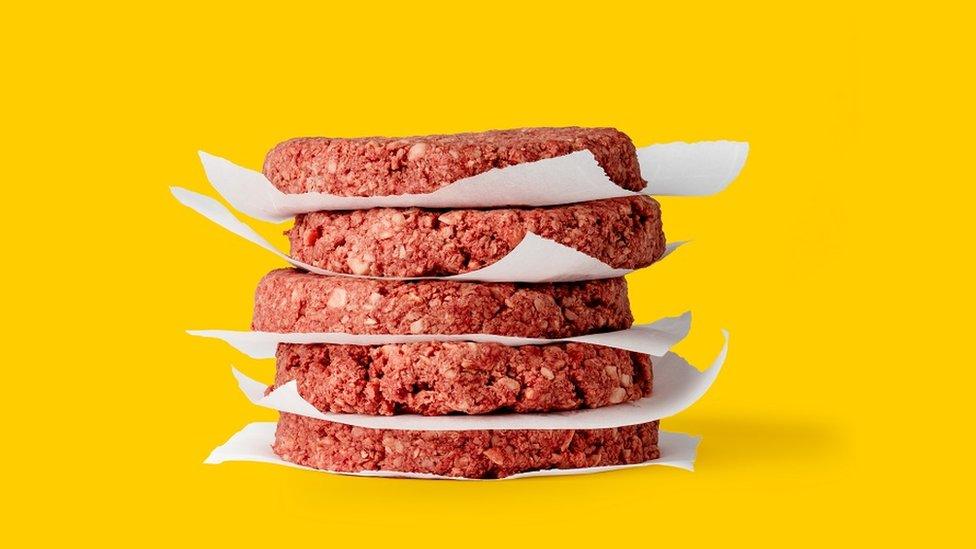
The vegan pattie is made from wheat, coconut oil, potatoes and, crucially, heme
The Californian firm's 70 scientists doing research and development treated the issue in the same manner as a biomedical one, says Mr Brown, figuring out the problem and working out what exactly it was in meat that made it so appealing.
"We needed to understand it in actionable terms so we could make deliberate choices to deliver those characteristics to consumers," he says.
The magic ingredient turned out to be a compound called heme. Their research identified this as the thing which made meat distinct, giving it a richer taste and its bloody, red colour.
High-end?
The firm has now figured out a way to produce heme on a large scale cost effectively by using fermentation.
So far the resulting burger is available in just four high-end restaurants, although Mr Brown says this will soon expand to seven.
The decision to choose expensive restaurants seems at odds with his desire to persuade the masses to ditch meat. But Mr Brown argues that strategically it makes sense.
"We can only produce small volume so we have to get maximum brand building from every pound of product we make," he says.
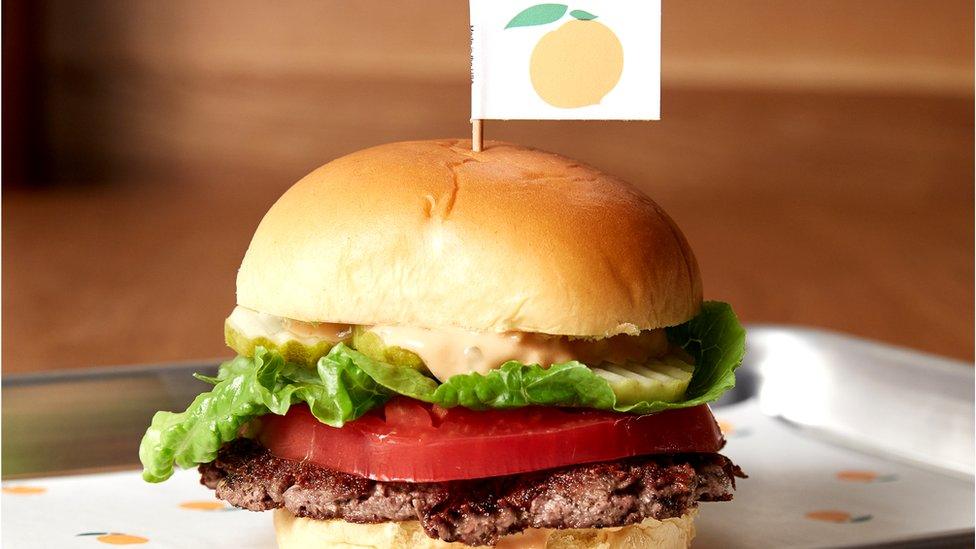
The vegan burger is currently only sold in four high-end restaurants
He argues that by choosing well-known establishments - largely known for their meat offerings - it will help further the firm's name.
But you won't see "vegan burger" on the menu. "It's divisive," says Mr Brown. Instead it's called the "impossible burger", with the small print explaining that the product is made from plants.
"People don't have to change their beliefs or buy into anything philosophically. The burden is on us to make a delicious and affordable burger," he says.
By the end of this year, production will ramp up, and he and his research and development team will double to 140 people.
But can it really compete with the mass market burger chains such as McDonald's and Burger King?
Mr Brown says he's already talking to places "of that ilk" but currently he remains focused on development rather than sales.
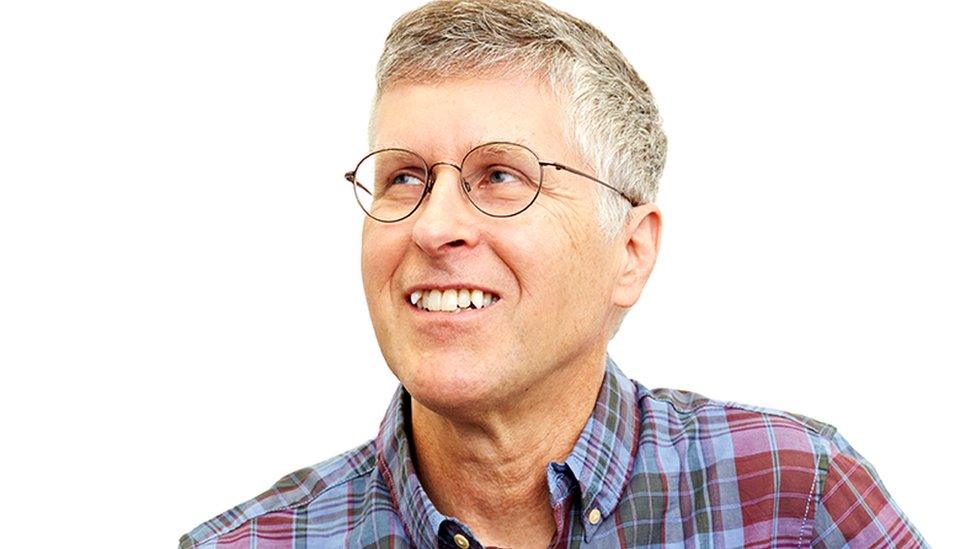
Patrick Brown came up with the idea of the vegan burger during a sabbatical
Pushed on whether the burger can also compete on price, he is unequivocal.
"By the end of the year we will be selling the product at a price where thousands of restaurants can sell it to their customers at the same price range as other stuff, and we will make money on every pound of [fake] meat that we sell," he says.
'Optimising deliciousness'
Ultimately, he claims the cost of their burger will be "substantially cheaper" than a burger from a cow.
"The economics are so much in our favour. It takes a lot of resources to produce a pound of beef," he says.
Mr Brown isn't the only confident one. The firm has attracted funding from some big-name venture capital firms including Microsoft co-founder Bill Gates, and Horizons Ventures, which invests on behalf of Hong Kong business tycoon Li Ka-shing.
He says this investment is supporting research and development, which will continue as it moves on to replicating other meat products and fish in the same manner.
And ultimately in the battle of cow versus meatless burger Mr Brown says he's got no doubts that he will win.
"I'm so completely confident I'm going to win this competition.
"A cow did not evolve to be eaten. It was just there and it's not getting any better at this. The product we have is now better than a month ago. We're optimising it for deliciousness."
- Published18 January 2017
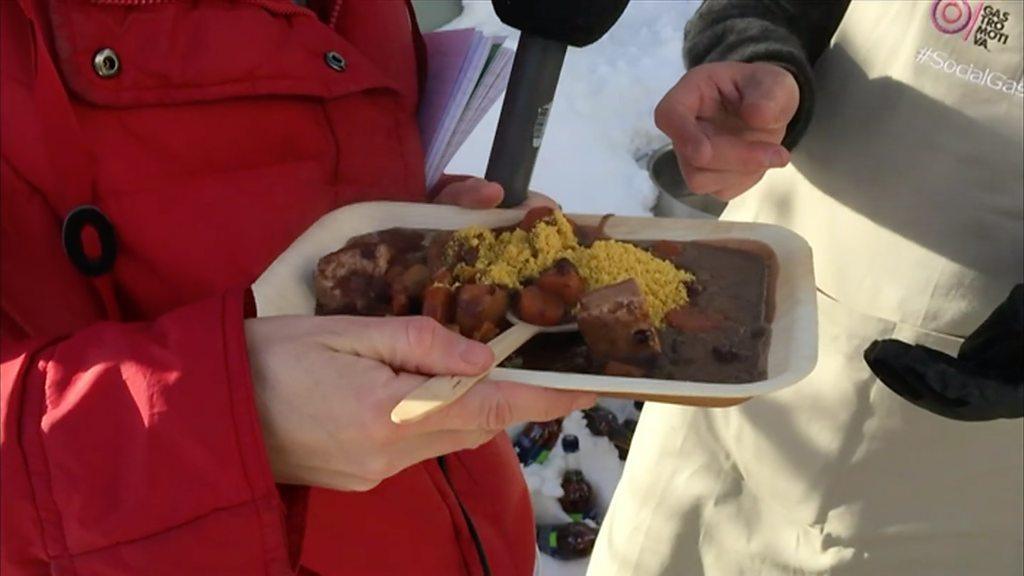
- Published18 January 2017

- Published17 January 2017
